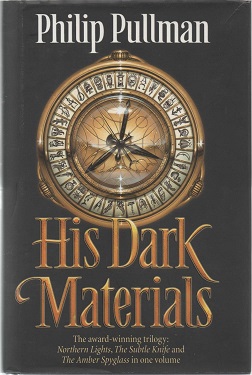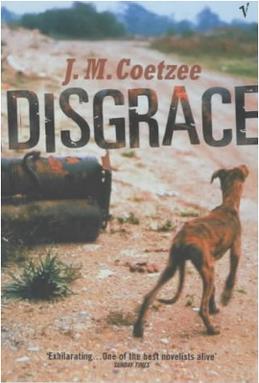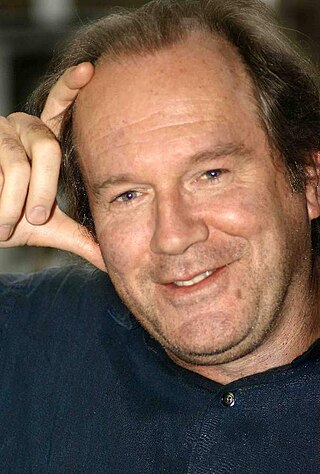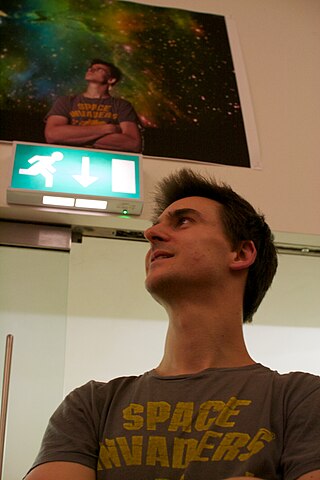
Creationism is the religious belief that nature, and aspects such as the universe, Earth, life, and humans, originated with supernatural acts of divine creation. In its broadest sense, creationism includes a continuum of religious views, which vary in their acceptance or rejection of scientific explanations such as evolution that describe the origin and development of natural phenomena.

Sir Fred Hoyle (24 June 1915 – 20 August 2001) was an English astronomer who formulated the theory of stellar nucleosynthesis and was one of the authors of the influential B2FH paper. He also held controversial stances on other scientific matters—in particular his rejection of the "Big Bang" theory (a term coined by him on BBC Radio) in favor of the "steady-state model", and his promotion of panspermia as the origin of life on Earth. He spent most of his working life at St John's College, Cambridge and served as the founding director of the Institute of Theoretical Astronomy at Cambridge.
Origin(s) or The Origin may refer to:

His Dark Materials is a trilogy of fantasy novels by Philip Pullman consisting of Northern Lights, The Subtle Knife (1997), and The Amber Spyglass (2000). It follows the coming of age of two children, Lyra Belacqua and Will Parry, as they wander through a series of parallel universes. The novels have won a number of awards, including the Carnegie Medal in 1995 for Northern Lights and the 2001 Whitbread Book of the Year for The Amber Spyglass. In 2003, the trilogy was ranked third on the BBC's The Big Read poll.

Ford Madox Ford was an English novelist, poet, critic and editor whose journals The English Review and The Transatlantic Review were important in the development of early 20th-century English and American literature.

Henry Graham Greene was an English writer and journalist regarded by many as one of the leading novelists of the 20th century.
Winston Mawdsley Graham OBE, born Winston Grime, was an English novelist best known for the Poldark series of historical novels set in Cornwall, though he also wrote numerous other works, including contemporary thrillers, period novels, short stories, non-fiction and plays. Winston Graham was the author's pseudonym until he changed his name by deed poll from Grime to Graham on 7 May 1947.

Theistic evolution, alternatively called evolutionary creationism, is a view that God acts and creates through laws of nature. Here, God is taken as the primary cause while natural causes are secondary, positing that the concept of God and religious beliefs are compatible with the findings of modern science, including evolution. Theistic evolution is not in itself a scientific theory, but includes a range of views about how science relates to religious beliefs and the extent to which God intervenes. It rejects the strict creationist doctrines of special creation, but can include beliefs such as creation of the human soul. Modern theistic evolution accepts the general scientific consensus on the age of the Earth, the age of the universe, the Big Bang, the origin of the Solar System, the origin of life, and evolution.

Disgrace is a novel by J. M. Coetzee, published in 1999. It won the Booker Prize. The writer was also awarded the Nobel Prize in Literature four years after its publication.

William Andrew Murray Boyd is a Scottish novelist, short story writer and screenwriter.

The Cradle of Humankind is a paleoanthropological site that is located about 50 km (31 mi) northwest of Johannesburg, South Africa, in the Gauteng province. Declared a World Heritage Site by UNESCO in 1999, the site is home to the largest known concentration of human ancestral remains anywhere in the world. The site currently occupies 47,000 hectares (180 sq mi) and contains a complex system of limestone caves. The registered name of the site in the list of World Heritage Sites is Fossil Hominid Sites of South Africa.

Joseph Martin McCabe was an English writer and speaker on freethought, after having been a Roman Catholic priest earlier in his life. He was "one of the great mouthpieces of freethought in England". Becoming a critic of the Catholic Church, McCabe joined groups such as the Rationalist Association and the National Secular Society. He criticised Christianity from a rationalist perspective, but also was involved in the South Place Ethical Society which grew out of dissenting Protestantism and was a precursor of modern secular humanism.

The Catholic Church holds no official position on the theory of creation or evolution, leaving the specifics of either theistic evolution or literal creationism to the individual within certain parameters established by the Church. According to the Catechism of the Catholic Church, any believer may accept either literal or special creation within the period of an actual six-day, twenty-four-hour period, or they may accept the belief that the earth evolved over time under the guidance of God. Catholicism holds that God initiated and continued the process of his creation, that Adam and Eve were real people, and that all humans, whether specially created or evolved, have and have always had specially created souls for each individual.

Loren Eiseley was an American anthropologist, educator, philosopher, and natural science writer, who taught and published books from the 1950s through the 1970s. He received many honorary degrees and was a fellow of multiple professional societies. At his death, he was Benjamin Franklin Professor of Anthropology and History of Science at the University of Pennsylvania.

Big History is an academic discipline which examines history from the Big Bang to the present. Big History resists specialization, and searches for universal patterns or trends. It examines long time frames using a multidisciplinary approach based on combining numerous disciplines from science and the humanities, and explores human existence in the context of this bigger picture. It integrates studies of the cosmos, Earth, life, and humanity using empirical evidence to explore cause-and-effect relations, and is taught at universities and primary and secondary schools often using web-based interactive presentations.
Nicholas Blincoe is an English author, critic and screenwriter. He is the author of six novels: Acid Casuals (1995), Jello Salad (1997), Manchester Slingback (1998), The Dope Priest (1999), White Mice (2002), and Burning Paris (2004). He was a founding member of the New Puritans literary movement and co-edited the anthology All Hail The New Puritans (2000) which included contributions from Alex Garland, Toby Litt, Geoff Dyer, Daren King, Simon Lewis, and Scarlett Thomas.
Joseph Carroll is a scholar in the field of literature and evolution. He received his PhD in Comparative Literature from the University of California, Berkeley and is now Curators’ Distinguished Professor Emeritus at the University of Missouri–St. Louis.
Although biological evolution has been vocally opposed by some religious groups, many other groups accept the scientific position, sometimes with additions to allow for theological considerations. The positions of such groups are described by terms including "theistic evolution", "theistic evolutionism" or "evolutionary creation". Of all the religious groups included on the chart, Buddhists are the most accepting of evolution. Theistic evolutionists believe that there is a God, that God is the creator of the material universe and all life within, and that biological evolution is a natural process within that creation. Evolution, according to this view, is simply a tool that God employed to develop human life. According to the American Scientific Affiliation, a Christian organization of scientists:
A theory of theistic evolution (TE) — also called evolutionary creation — proposes that God's method of creation was to cleverly design a universe in which everything would naturally evolve. Usually the "evolution" in "theistic evolution" means Total Evolution — astronomical evolution and geological evolution plus chemical evolution and biological evolution — but it can refer only to biological evolution.

Sapiens: A Brief History of Humankind is a book by Yuval Noah Harari, first published in Hebrew in Israel in 2011 based on a series of lectures Harari taught at The Hebrew University of Jerusalem, and in English in 2014. The book, focusing on Homo sapiens, surveys the history of humankind, starting from the Stone Age and going up to the twenty-first century. The account is situated within a framework that intersects the natural sciences with the social sciences.

Lewis Ryan Dartnell is a British astrobiologist, presenter, and professor of science communication at the University of Westminster. His works of popular science include The Knowledge: How to Rebuild our World from Scratch and Origins, which looks at how geology has impacted human history.













